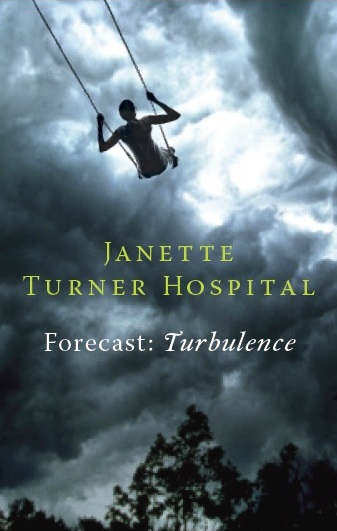|
Winner of Steele Rudd Award for Best Collection of Short Stories, 2012
Finalist (one of five) for Prime Minister's Literary Award for Fiction
Finalist (one of five) for the Melbourne AGE Book of the Year Award for Fiction
Violent weather pervades this breathtaking collection, reflecting the cataclysmic emotions swirling through the lives of the protagonists. A loner becomes obsessed with the face of a beautiful neighbor whom he has never actually met, though his fantasies about her, unwisely shared with others, lead to his being falsely accused of her murder. Two feisty yet fragile teenagers meet in the prison where they are forced to visit their abusive stepfathers. The upward trajectory of talented and academically successful sisters takes a nose-dive following the terribly public exposure of their father as a pedophile.
These stories, of heartbreaking poignancy, shocking power and steadfast resolve, all grapple with a universal question: how can we maintain equilibrium in a turbulent and uncertain world?
PURCHASE THIS BOOK FROM:
http://www.betterread.com.au/book/forecast-turbulence.do
http://www.ozbabyboomers.com.au/books/2011/10_11/hospital/hospital.html
The Saturday Age, Melbourne, Australia (link)
The Wheeler Centre, Melbourne, Australia (link)
Australian Book Seller and Publisher (see below)
Launceston Examiner (see below)
Canberra Times (see below)
Janette Turner Hospital's anthology of stories gathers together a
striking array of disturbed and disturbing characters....
The empathy, sadness, shock and occasional horror that I felt while
reading this collection is a testament to Turner Hospital's skill. The theme of
family turmoil particularly in the relationships between parents and children
flows through the collection and is reflected in the central motif of stormy
weather. Turner Hospital's writing is both sharp and intimate. She doesn't shy
away from brutality, and in this and the theme of individuals struggling
among forces much larger than themselves it contains similarities to Due
Preparations for the Plague.
- Australian Bookseller and Publisher (starred review)
AUSTRALIAN-born Turner Hospital has set this series of short stories
in both Australia and South Carolina, all in places where she has lived. A
common thread throughout is the cast of compelling and enigmatic characters whose stories are just as
troubled and uncertain as the turbulent and unpredictable weather that is used
as a metaphor throughout. Powerful stuff!
- Sue Stevenson, Launceston Examiner
Forecast: Turbulence is a carefully orchestrated suite of nine short stories, followed
by a memoir, "Moon River-. The memoir is a lean, subtle piece about a
visit Turner Hospital makes to Brisbane, where her elderly mother is
hospitalised and, later, dies. As she contemplates her family's history, the
"tangled ribbon" of the Brisbane River becomes the thread that -ties
[her] childhood to [her] now". The river is variously brown and muddy, or
gilded in the night's radiance, but the memoir itself remains limpid. Entering
the darkness of mourning, she observes an evasion of darkness in Queensland,
the Sunshine State: "we resist shadow. We don't believe in darkness."
From the publication of her first novel, The Ivory Swing, Brisbane-raised
Turner Hospital has countered that resistance. The Ivory Swing won Canada's
prestigious and lucrative Seal Award for best first novel for its taut, perceptive
examination of the life of its Canadian protagonist as she moves with her young
family to India and struggles with a sense of being submerged in domesticity. From there, Turner Hospital's critically acclaimed
eight novels and four collections of short stories have continued to explore
shadow and darkness, and the struggle to express that.
Forecast: Turbulence opens with the depiction of a child, Lachlan,
hovering in the background of preparations for his sister's wedding, and
wondering whether their estranged father will appear on the day. Lachlan is
blind, but can read footsteps and interpret the vibrations of others' movements.
He remembers his father's departing hug, and associates it with his freshly
laundered shirt, thereafter curling up in the laundry basket for solace, until
the scents of bleach and steam and washing powder collide with his father's retreating
words: "I'm drowning, mate, and I just can't breathe." Deluge,
churning water, small boats in cyclones sensations and images are compressed in the boy's sorrow as he anticipates both his father's
arrival, and the possibility of his not appearing.
In "Salvage" there is a similar compression, through which
protagonist Rufus, skipper of a whale-watching boat, translates whale song,
which he feels as a caress and affirmation in the wake of the loss of his
mother many years earlier. Turner Hospital works to find, in the
literal, the bones of metaphor. In this case, mute, outcast Rufus
knows that the rumours that hum about him "multiply like krill" and that
cruel jokes move "stealthy as a harpoon". He feels, but refuses to
count the resulting "contusions" and hears entire phrases "sharp
as fish hooks". There's a kind of flamboyance to this, as Turner Hospital
presses the metaphorical from the literal, working and reworking with her
central metaphors.
One of the darkest currents in the collection relates to the
vulnerability of children. Early stories in the collection centre on bereft and
brutalised children, most horrifically in the almost-unbearable "Weather
Maps", in which two young teenage girls visit their mothers' boyfriends in
prison, their conversation mapping the hidden cuts of their shared
self-harm and the abuse they suffer at the hands of these ersatz fathers.
"I know you think I'm neurotic," says Simon, the father of
two small children to their mother Melanie at the start of another story,
"Afterlife of a Stolen Child", "but they seem intolerably
fragile to me.- Turner Hospital fractures this story of the abduction of a
toddler and its aftermath into the slivers of its several first-person narratives.
Simon is an academic, prone to reflection. Or, as Turner Hospital puts it,
"steamrollering on in a melancholy, academic way": "Harm seems
so arbitrary. So . . . malevolent. It terrifies me." Melanie is contrastingly
carefree, though there is something brittle in her insistence on lightness (and
it is in her revelation of such ambiguities that Turner Hospital's power is
most evident). Warned by Simon of approaching rain, she replies that she's
"always adored walking in the rain".
And although she repeats this to her babies as they set off for their
walk, she also expresses dislike of the neighbour: "I don't like that man. . . He watches
us."
The slivers of story make for sharp edges that probe the untellable
as the theft of one of these children brings, "at a sickening heart-stopping
speed", a slide into "free-fall into the void" for his parents.
Woven around this atrocity are other kinds of darkness, as questions of
responsibility emerge, along with even darker questions of the possibility of
others finding pleasure in the crime.
The unknowability of the child's fate and the hopes, despair and
fantasies that cling to it resonate in the title story, "Forecast: Turbulence",
where a university student meets her estranged father. The story's twist underlines
again the idea of the unknown as the darkest place, and the resistance of the
unknown.
The pieces in the collection are connected by their transformation
of turbulent weather conditions into markers of characters' emotional states. This
is evident in the stories' titles and settings. Beneath these overarching similarities,
more striking is the range of characters
Turner Hospital evokes, and her illumination of the ways suffering
is particular. It is in this tension between the ways that weather conditions
something under mundane circumstances assumed to be common ground both express and mask the peculiar and
private nature of human suffering, that the varieties of darkness in human lives become unsettlingly apparent.
- Felicity Plunket, Canberra Times
BACK TO BOOKS
|
|
 |


